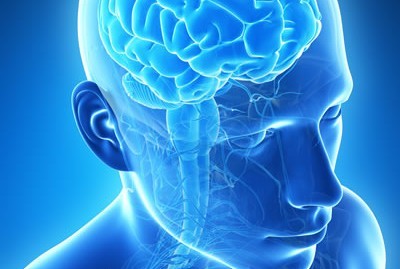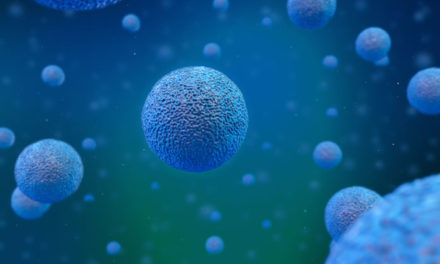
The extent to which a patient can recover following a stroke is one of the first questions that requires an answer, and unfortunately it's one of the questions that the even experts in the field have trouble answering.
Nevertheless, I will try to give you an answer, even if it won't be easy. In fact, this is one of the articles that I had the most difficulty writing.
Furthermore, in this article I will also try to respond to the 2 questions linked to the concept of "the extent to which it is possible to recover". These are the following:
- How long after a stroke is it still possible to recover?
- Does it make any sense to think about rehabilitation after “X” years?
These are the most frequent questions that I received in my emails everyday.
To what extent is it possible to recover following a stroke?
As you know, during the hours following a stroke, it is sometimes unclear whether or not the patient will even be able to survive. For this reason the professionals tend to prepare the family for even the most dramatic outcome. Therefore, the initial response to this question can be quite negative.
In the coming days following the stroke, if the situation becomes more favourable and the clinical situation stabilizes, family members will ask this question again. The professionals will tend to rebuff the question by reiterating the seriousness of the situation and how lucky the patient is to have survived.
Every stroke is unique, and every situation is entirely individual, and therefore that which I am telling you must be taken with a grain of salt.
Subsequently, the professional might tell you that if a rapid recovery is seen within the first few weeks, then the situation will be more favourable. While, if the paralysis persists beyond that, then the possibility of recovering autonomous movements will be minimal.
In these situations, it's not uncommon to hear phrases like "the arm is dead, there's no hope", or "there's nothing that can be done for the hand".
With regards to the legs and the ability to walk, the prognoses are generally more favourable. But even in this case certain clarifications should be made.
I am personally not very fond of the term "dead" when my patients tell me about phrases like that. Sadly, I think the only thing that is "dead" in those cases is the desire to change the circumstances.
If post stroke recovery is so difficult, it can only be blamed on those of us who study the issue every day. We should be coming up with increasingly effective solutions to offer greater hope to those who have survived strokes and now must find a way to live with the unfortunate effects.
When my patients would say that they heard someone say "the arm is dead", I always show them a photo on my mobile phone. It is a picture of one of my patients before named Bernardo, who was told at a well known clinic in Berlin that his arm was "dead", and was even told that he wasn't expected to live for more than a year and a half.
The hand with which he's writing my name is the hand that was supposedly dead. Today, it's more than 3 years have passed since he suffered his stroke, he is now 81 years old.
He always tells me that one day he'd like to go back to Berlin to show his hand to that doctor.
Don't get me wrong. I'm not telling you the story of Bernardo because I want you to think that every situation can have such a positive outcome. Bernardo is certainly a special case, and I had the chance to work with him personally for a long time. The lesion that he suffered was likely conducive to his recovery, but there were many other difficult factors that also had to be taken into consideration.
I'm telling you about Bernardo because he too was told that his arm was dead and that he would always be confined to a wheelchair. Today, however, he is able to perform various activities with his hand and is even able to walk. Although I'm not entirely satisfied with his walking, he is continuously showing dedication and improvement.
To what extent can one recover?
Each situation is unique and there are a number of things need to be evaluated:
- Every stroke damages the patient's brain in a different way
- Every person who suffers a stroke is different from the next
Therefore, a doctor who finds himself looking at a patient's chart is not always able to say how things are going to turn out.
Consider this: right now I've got 2 patients, one with a brain lesion just a few millimetres in size, while the other has a rather extensive lesion covering almost half of the brain.
And the patient with the more extensive damage is currently making a faster recovery. It is therefore extremely difficult to predict how things will turn out.
I have a phrase that I like to tell my patients,
which really sums up my thoughts on this issue:
"I can't tell you exactly the extent to which you will be able to recover. What I can tell you, however, is what needs to be done in order to obtain the best possible results."
Following a stroke, in fact, nature places a certain potential for recovery at our disposal. But we have to make the right choices in order to get the most out of it.
It doesn't have anything to do with HOW MUCH physiotherapy needs to be done, but rather WHAT TYPE of physiotherapy needs to be done in order to make the most of what nature has placed at your disposal.
For example: I will not obtain the same degree of recovery if I do 1 hour of hippotherapy per day rather than 1 hour of neurocognitive rehabilitation (the Perfetti method) per day. The results will naturally be different.
I won't achieve the same degree of recovery by doing one hour of muscle reinforcement per day as that which I would by doing one hour of neurocognitive rehabilitation.
Therefore, keep in mind that NOBODY will be able to tell you precisely to what extent a patient will be able to recover following a stroke, and VERY FEW will be able to tell you precisely what needs to be done in order to get the most out of the patient's potential for recovery.
Unfortunately there is no single path to be taken by everybody. The situation can be extremely confusing, so the decisions need to be made in a well-informed manner and based upon reasonable information.
The extent of your recovery will depend upon the degree to which the brain is able to be remodelled. That is to say that the stroke has damaged certain areas of the brain that have certain cognitive functions associated with them. To recover them, certain exercises have to be done in order to reorganize the altered functions.
Luckily the brain is a highly flexible organ, or rather it's an organ that's capable of modifying itself based on the experiences to which it is subjected.
Just think about it, if you want to learn how to play the piano, do you think it's better to have a teacher show you the notes, the music, the sounds, and the technique? Or do you think you'd be able to learn on your own just by doing exercises to strengthen your fingers?
In this case we're talking about trying to learn a certain ability, and the method should be exactly the same in the case of trying to recover a certain ability!
For how long is it possible to make a recovery?
Does it make any sense to talk about recovery after a certain number of years have passed?
During the first 2 to 3 years following a stroke, the improvements will naturally be more evident (based of course on the therapy selected).
The improvements are subsequently more gradual, but remember that Bernardo at age of 81, 3 years following his stroke, continues to enjoy little improvements that render his quality of life increasingly better.
I think that the point, however, is something else. As we have said, the brain is a flexible organ that is always capable of learning and improving, even if more gradually over time. It is therefore always best to focus upon improving the patient's quality of life and getting the most out of the potential for recovery that nature has placed at their disposal.
I hope that I have been able to provide you with some clarifications on this extremely sensitive topic.
Here you'll find our newsletter, to which a total of about 20 patients, family members, and professionals subscribe every day in order to receive free additional information about stroke and stroke recovery. The first report will be titled "10 Things You Need to Know About Stroke"
START FROM POINT #1
Discover the stroke recovery video guides, and start a new chapter of your rehabilitation journey!


